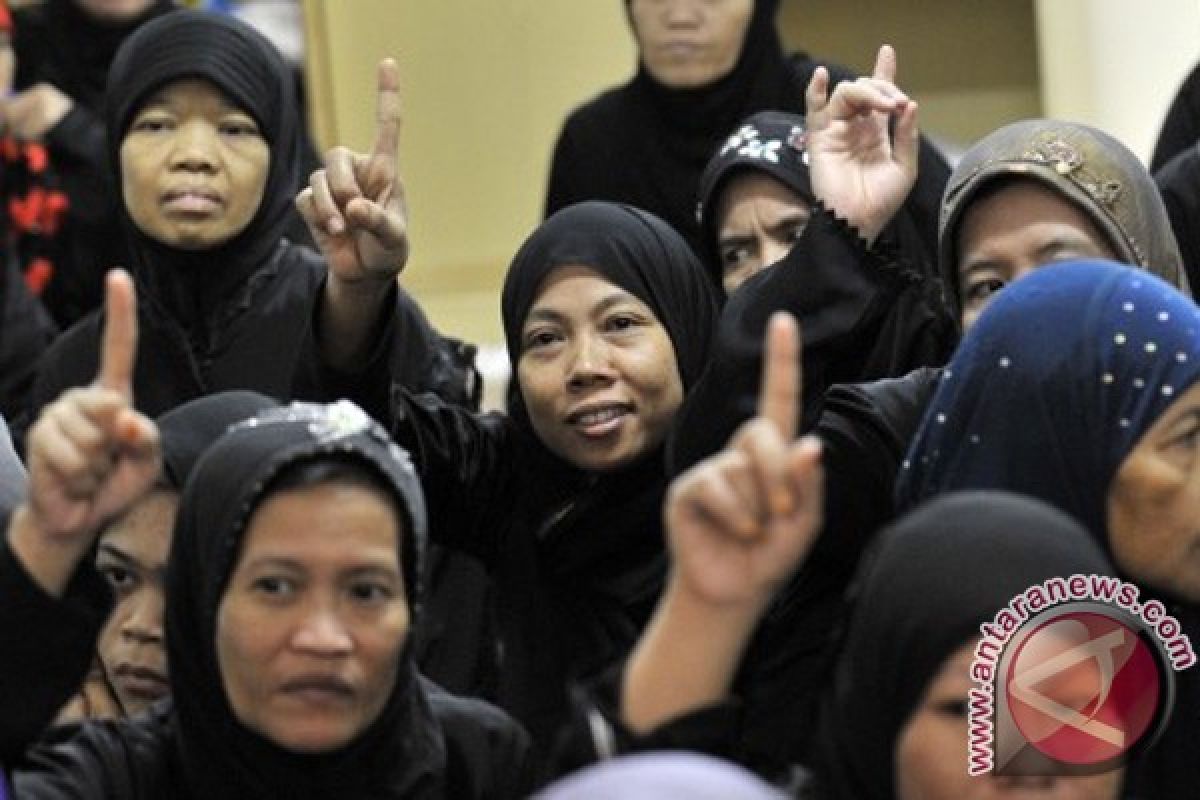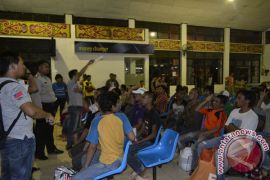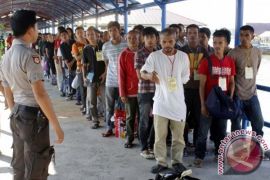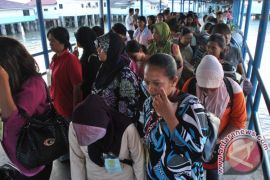In most of the cases that have happened so far, they ended up as the losers due to lack of protection or access to legal aid, and this fact led many parties at home to criticize the government for failing to pay proper attention to migrant workers problems.
Therefore, the government is now considering introducing a `live-out` system for its workers abroad, calling on Indonesian representatives abroad to pay more attention to them and asking Indonesian lawyers to provide them with legal advice when they are facing legal problems abroad.
"With the application of a `live out` system, Indonesian domestic helpers (TKI) do not need to stay 24 hours at their employers` houses," Moh Jumhur Hidayat, head of the National Agency for Placement and Protection of Workers Abroad (BNP2TKI), said.
The BNP2TKI chief said Indonesian domestic helpers were often exposed to the risks of maltreatment by and conflict with their employers if they were employed on `live-in` terms that required them to stay 24 hours in their employers` homes.
Jumhur made the remarks recently when he led a coordination meeting in Dubai, United Arab Emirates on TKI services. It was part of the efforts of the government to increase its protection for Indonesian migrant workers who were often exposed to the risks of maltreatment by and conflict with their employers.
In Dubai,the Indonesian senior manpower official discussed efforts to improve services for Indonesian migrant workers with Indonesian representatives in the Middle East region and North Africa.
One of the result of the meeting was the idea to make it possible for Indonesian domestic helpers working abroad to stay outside their employers` homes after work to save them from various risks.
He said protection of Indonesian domestic workers abroad could be better guaranteed if they did not stay with their employers for 24 hours which could cause many risks for them.
"In the live-out system, domestic helpers go home to a boarding house after working 8 hours since morning at their employers homes," he said.
Jumhur asked the Indonesian representatives in the Middle East to lobby local manpower suppliers and employers to adopt the live-out system in hiring Indonesian migrant workers.
The live-out system would not only make Indonesian domestic helpers easier to protect but also more respectable. In fact, it would also be better for the host country`s reputation.
"This system must be implemented for the sake of Indonesian domestic workers` dignity," he said.
Besides trying to introduce the live-out system, the government also called on Indonesian representatives overseas to increase efforts of protecting Indonesian migrant workers, particularly those in the Middle East.
There are about 1.5 - 1.7 million Indonesian migrant workers in the Middle Eastern countries, including those who were working illegally. Therefore, Indonesian migrant workers overseas needed protection from Indonesian representatives in the form of services and assistance when they faced problems.
"This is a protection mandate given to Indonesian representatives abroad, particularly in the Middle East," Jumhur said.
He said that by optimizing protection, the Indonesian representatives would show the effectiveness of their task which could be felt by migrant workers in defending their interests.
Besides protection by Indonesian representatives abroad, lawyers at home are also encouraged to give their legal defense and counseling to Indonesian problematic workers.
This appeal was raised by Jumhur in his meeting with advocates grouped in the Indonesian Advocates Association (AAI).
"A legal defense provided by members of the Indonesian Advocates Association (AAI) for Indonesian migrant workers (TKI) overseas will win the people`s appreciation. It would also change its image," Jumhur said.
So far, the public image is that AAI is an organization which so far provides defense for the elite. If it helps migrant workers abroad it will create its image as a group which also provides advices for nondescript persons.
He said that the presence of advocates so far rarely touched on cases of TKIs and their families, where cases of TKI could provide a challenge for a lawyer to take side with small people. "Migrant workers have various cases ranging from dispute, tortures by employers to murders and others which should be defended by both the government and advocates so that their dignity could be protected," Jumhur said.
After all, Indonesian migrant workers have many opportunities overseas, particularly in the Middle Eastern and African Arab countries.
Indonesian Ambassador to Sudan Dr Sujatmiko, for example said in the press statement that Sudan was now needed hundreds of professionals from Indonesia.
The ambassador said that Sudan needed some 500 professional workers from Indonesia to be placed in the construction, medical and agricultural sectors.
"Sudan has expressed interest in employing 200 construction workers, 120 nurses, 200 engineers and 15 agriculture machine operators," the ambassador said.
(T.A014/HAJM)
Reporter: by Andi Abdussalam
Editor: Priyambodo RH
Copyright © ANTARA 2011









